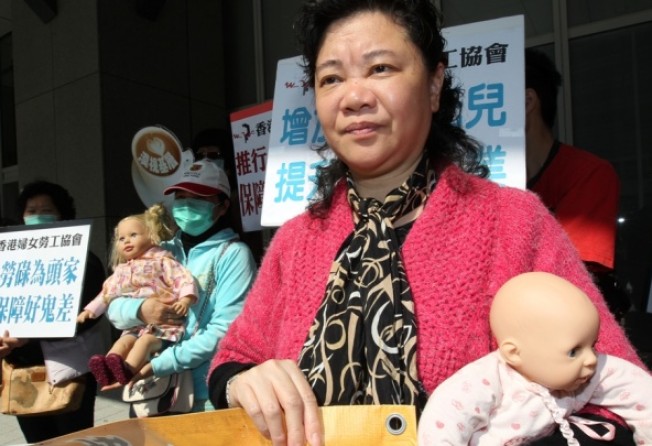Hong Kong must unleash women's potential to drive progress
Matthew Cheung says more can be done to enable their advancement

The Hong Kong government attaches great importance to promoting the well-being of women. The Women's Commission plays a high-level strategic role in advising the government on policies, legislation and services affecting women.
We have adopted a three-pronged approach which boils down to the "Three E's" strategy: enabling, empowering and educating women to play a full role in society and to unleash their potential.
First is an enabling environment. Since 2002, we have implemented gender mainstreaming in over 45 policy or programme areas, including promoting stopping smoking, breastfeeding and the provision of baby-care facilities, as well as the development of a gender-specific programme for women offenders.
Another example is the introduction in 2004 of a gender benchmark of 25 per cent for appointing members to the many government statutory and advisory bodies. The benchmark was further increased to 30 per cent in 2010. Currently, 33 per cent of all government-appointed members are women.
In the corporate world, it is encouraging that the Hong Kong exchange is promoting board diversity, including gender diversity.
In the Executive Council, there are five women among 15 non-official members. And let us not forget that our chief secretary is a woman. At the top of the civil service, half of the 18 permanent secretaries are female.
We have 11 female elected members among the 70 Legislative Council members. At the district level, 89 district council members are women. This figure is on the low side, considering we have more than 500 members in the territory. Obviously, more needs to be done to achieve true equality.
How does Hong Kong fare in empowering women in joining the labour force, in striving for socio-economic self-reliance and in civil participation? Two years after the introduction of the statutory minimum wage, our female labour force has risen by 6.3 per cent to more than 1.86 million and the female working population has increased by 6.5 per cent to over 1.8 million. The increases were notably higher than those recorded for male workers, suggesting women have benefited more from this landmark legislation.
The proportions of female managers and administrators, professionals and associate professionals have been increasing.
Entry into higher professions is no longer off limits, either. The proportion of female professionals has increased steadily. In 2011, 48 per cent of certified public accountants (vs 40 per cent in 2001), 46 per cent of solicitors (vs 38 per cent in 2001), and around 30 per cent of medical doctors (vs 24 per cent in 2001) were women. Clearly, more women in Hong Kong are moving up the social ladder.
As in many other developed regions, women form the mainstay of volunteers here - around 60 per cent of the 1.08 million-strong registered volunteers.
With the dual challenges of a rapidly ageing population and dwindling workforce, we need to seriously consider how best to unleash the potential of women and attract them to the labour market. The Steering Committee on Population Policy is looking at how best to do this through family-friendly measures.
A wide range of publicly funded vocational training, retraining and continuing education opportunities are in place to promote the quality of our workforce. For the academic year of 2011-12, women students accounted for a significant 53.2 per cent of the enrolment of all tertiary education programmes funded by the government.
While many women in Hong Kong are excelling in their careers that their mothers and grandmothers believed were far beyond their reach, there is still room for improvement. We need to do more to provide local women with the opportunities of advancement that they deserve.
This is an edited version of a speech by Secretary for Labour and Welfare Matthew Cheung Kin-chung in the capacity of acting chief secretary at the recent forum Searching for a New Dimension for Hong Kong Women